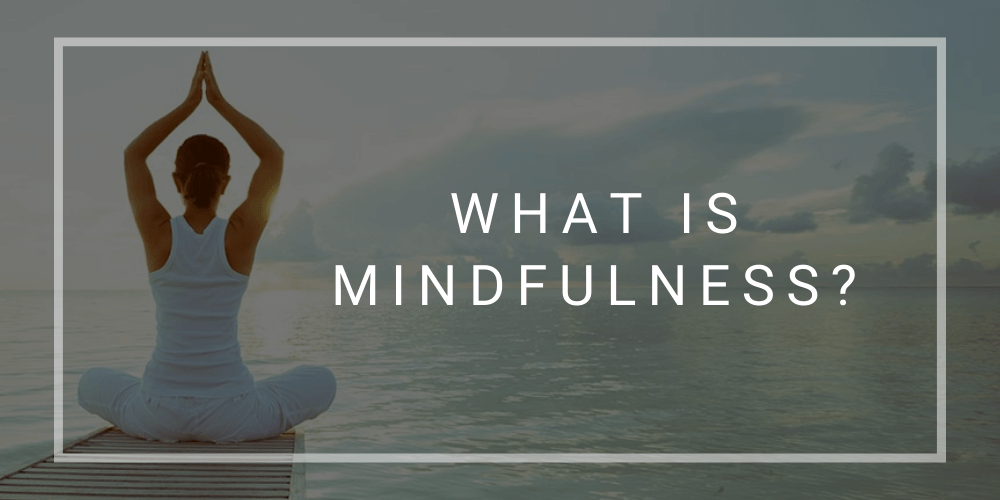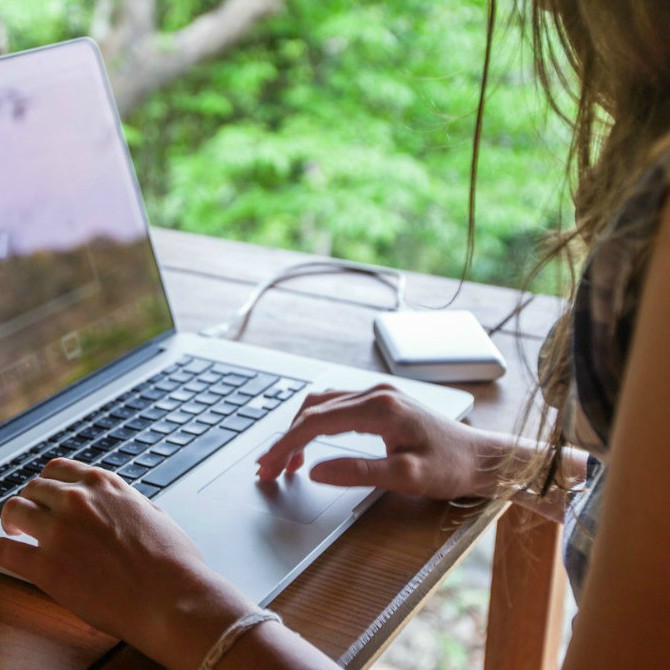Mindfulness

Breathe and Smile to Everything you Encounter
The Buddhist monk, Thich Nhat Hanh, led a retreat in Montreal, Canada. He noticed that every time a car stopped in front of him, he saw the sentence on the license plate “Je me souviens” (I remember). He did not know what was to be remembered but it gave him an idea. So he told his audience, “I have a present for all of you here. Every time you see a car stop in front of you with the line ‘Je me souviens’ you can see it as a bell of mindfulness. It will help remind you to breathe and smile in this very moment. And you will have plenty of opportunities to breathe and smile while driving in Montreal.”
One of his friends was delighted and enjoyed the practice in Montreal. But when he came to visit Thich Nhat Hanh in Paris he said that Paris was not a good place to practice mindfulness while driving because there is no signs of ‘Je me souviens.’ He was instructed to practice mindfulness with red lights and there were plenty of red lights in Paris. When he went back to Montreal, he wrote a letter to Thich Nhat Hanh: “Practicing mindfulness in Paris was pretty easy after all. Not only did I practice with the red lights and stops signs, but every time a car stopped in front of me, I saw the eyes of Buddha blinking at me. I had to smile at those blinking eyes.”
Teaching
Practicing mindfulness brings our awareness to the NOW and to the present moment in order for us to experience a flower, the blue sky, a child, a tree, and the brilliant light. Even when we encounter the real problems in the world, with mindfulness we would know what to do. If we remain aware of mindfulness and continue to practice breathing and smiling, everything in the world, including people, animals, and plants, will benefit from our way of conducting ourselves. We actually start planting the seeds for peace and joy on the planet. Teaching and practicing mindful breathing and awareness in small acts of daily living heals and transforms difficult psychological states. It also leads to personal inner peace and peace on earth.
Being mindful keeps us present with whatever we are doing in our everyday lives. When we eat, we just eat and enjoy every aspect of the eating experience, such as the taste and texture of the food, without engaging other activities like reading, watching TV, or arguing. When we read, we simply read without engaging in other thoughts and emotions. When we play sports, we just experience the enjoyable and pure aspects of the sport without attaching to the consequences of playing. When we walk, we just walk and enjoy the texture of the ground, the sensations of our muscles contracting and our bodily reacting to the walking, the beauty of passing by trees, leaves, flowers, and even blades of grass without trying to figure out what to do with our dear irritating coworker.
Being mindful is expressed and experienced as a state of single mindedness. Every task needs our full attention. When we zero in and focus on it, we start enjoying the process of completing the task at hand. In the process, we no longer consider the likes or dislikes of the task. We simply do what we need to do as a part of our duties and responsibilities as father, mother, worker, or teacher.
Right Mindfulness
And what is right mindfulness? There is the case where a monk remains focused on the body in and of itself—ardent, alert, and mindful—putting aside greed and distress with reference to the world. He remains focused on feelings in and of themselves. The mind in and of itself–consciousness in and of itself— ardent, alert, and mindful—putting aside greed and distress with reference to the world. This is called right mindfulness. Right mindfulness leads to the attainment of purity, overcoming of sorrow and lamentation, end of pain and grief, pursuit of the right path and realization of Nirvana.
Right mindfulness is the seventh step of the Buddha’s Eight-fold Path. The purpose of practicing mindfulness it is to see things as they really are. A key to the experience of mindfulness is the little word, “ardent.” Ardent means being passionately attentive. We are passionately attentive to the true being of things as they are, so as not to allow the mind to wander into the dream of imagination with its fears and regrets.
Practice
- Driving. The next time you are driving, pay attention to all the details along the road, including the trees, the flowers, the colors and shapes of the cars, and the beauty of the universe. When you are caught in traffic, do not fight the situation. Instead just sit back, smile to yourself, and start enjoying all the beautiful surroundings. Experiencing the present moment, you and everyone in the car will feel happier.
- Waking up. When you wake up in the morning, smile when you take your first fresh, conscious breath. Feel the cool and invigorating air entering into your body, mind, and soul, hear the birds singing not just with your ears but also with your heart, and see beams of light shinning through the window illuminating your body, mind, emotions and soul.
- Taking the first step of the day. Walking on the Earth is a miracle! Every step we take is a step of rebirth and renewal and a step closer to ultimate spiritual evolution, enlightenment. We do not have to walk in space or on water to experience a miracle. The real miracle is to be awake in the present moment. We can realize the wonder of being alive.
- Brushing your teeth. Brushing your teeth will make your mouth clean and fragrant. Feel the freshness of the water and the sensations of brushing and rinsing. The cleanliness of your mouth will remind you to speak purely and lovingly. Make your words fragrant! Our speech can build world peace, and peace within us in which trust and love can flourish.
- Meditation. Inviting the sound of the bell brings you back to the joy of being in the body, mind, and soul. In this state of perfect oneness, you can transform all anxiety and sorrow into stillness. The body is mindfulness itself, the mind is entirely free from distraction, and consciousness reveals itself in a state of equanimity. Feelings come and go like clouds in a windy blue sky. Conscious breathing is the anchor. Following the breath, breathing in, calming the body, breathing out, smiling within. Dwell in the present moment, because this is a wonderful moment.
- Eating. Turning off the TV, putting down the newspaper, stopping unhealthy conversations, and even stopping all conversations, will help you to eat consciously and mindfully so you can enjoy your food and the presence company. The purpose of eating is to eat and feel the divine that dwells in you. Eating is not merely for the purpose of obtaining energy.
Read :: Mind – It’s Mysteries and Control by Swami Sivananda
What is Spiritual Healing?
Spiritual healing is not about dogmatic rituals that we have to perform or the specific ways that we have to live. It is about the connection to our inner teacher, a teacher who speaks the truth to us when our mind is quiet, and there is no interference of learned knowledge or philosophy. It is about our connection to the essences of our universe, water, air, fire, earth, and ether. These elements are who we are, where we came from not long ago, and where we will return in the very near future.
Spiritual healing is about our connection to our spiritual beings, beyond our physical temporary existence in this universe. It is about the connection to the cycle of the universe and the cycle of our human race. Those cycles are the same; the difference in time and space are only created in the human mind.
Ama in Ayurveda
In the realm of Ayurvedic medicine, the concept of Ama—undigested material—is pivotal for understanding the genesis of disease and the maintenance of health. Rooted in centuries-old texts, this principle offers insights into the systemic imbalances that contribute to...

Rasayānas: Why detoxing is only half the work
Detoxing has been all the rage the last decade or so. We at yoga veda are totally for this trend. However (and it’s a rather important however), it really doesn’t stop there. In ayurveda detox programs called Panchakarma पंचकर्म are temporary measures used to...

Sleep – What Ancient Wisdom Tells Us
Sleep, surprisingly, is no simple matter. For many of us, no matter how much we crave and value a good night's sleep it doesn’t come that easily. We either get too little, too much, or poor quality and disturbed sleep. According to Charaka all of the above lead to...



